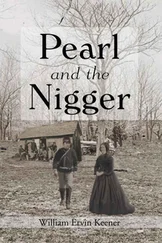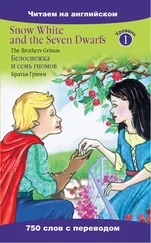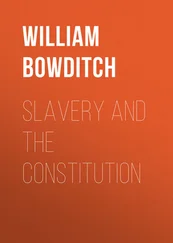William Tenn - Venus and the Seven Sexes
Здесь есть возможность читать онлайн «William Tenn - Venus and the Seven Sexes» весь текст электронной книги совершенно бесплатно (целиком полную версию без сокращений). В некоторых случаях можно слушать аудио, скачать через торрент в формате fb2 и присутствует краткое содержание. Год выпуска: 1949, Издательство: Avon, Жанр: Юмористическая проза, на английском языке. Описание произведения, (предисловие) а так же отзывы посетителей доступны на портале библиотеки ЛибКат.
- Название:Venus and the Seven Sexes
- Автор:
- Издательство:Avon
- Жанр:
- Год:1949
- ISBN:нет данных
- Рейтинг книги:5 / 5. Голосов: 1
-
Избранное:Добавить в избранное
- Отзывы:
-
Ваша оценка:
- 100
- 1
- 2
- 3
- 4
- 5
Venus and the Seven Sexes: краткое содержание, описание и аннотация
Предлагаем к чтению аннотацию, описание, краткое содержание или предисловие (зависит от того, что написал сам автор книги «Venus and the Seven Sexes»). Если вы не нашли необходимую информацию о книге — напишите в комментариях, мы постараемся отыскать её.
Venus and the Seven Sexes — читать онлайн бесплатно полную книгу (весь текст) целиком
Ниже представлен текст книги, разбитый по страницам. Система сохранения места последней прочитанной страницы, позволяет с удобством читать онлайн бесплатно книгу «Venus and the Seven Sexes», без необходимости каждый раз заново искать на чём Вы остановились. Поставьте закладку, и сможете в любой момент перейти на страницу, на которой закончили чтение.
Интервал:
Закладка:
“Hold it,” Hogan commanded. “I have an ounce of sanity left, and I might want to use it to blow my brains out. I am no longer slightly interested in how a nzred weaves in and out of this crazy reproductive dance, and I certainly don’t want to hear about your mitosis. I have troubles of my own, and they grow nastier every second. Tell me this: how many offspring does a sex have each cycle?”
“That depends on all parents being alive throughout, on the amount of unhatched eggs due to over-variation in particular cases—”
“OK! At the end of a perfect cycle—when the smoke clears—how many baby plookhs do you have all told?”
“Plookh h . We have forty-nine young.”
He rested his head on the back of the chair. “Not very many, considering how fast you seem to go out of this world.”
“True. Dismally true. But a parent is unable to hatch more than seven eggs in the conditions under which we live, and completely unable to rear more than seven young so that all will get the full benefit of his survival-knowledge. This is for the best.”
“I guess so.” He removed a pointed instrument from his garment and a sheet of white material. After a while, I recognized his actions from nzred fanobrel’s description. “In just a moment,” he said, while writing, “I’m going to have you shown into the projection room where you’ll see a recent stereo employing human performers. Not too good a stereo: colossal in a very minor way; but it’ll give you an idea of what I’ll be doing for your people in the line of culture. While you see it, figure out ways to help me on a story. Now, is this Gogarty’s description of your chromosome pattern after the parent germ-cell has undergone meiosis?” He extended the sheet under my sensory tentacles:

“Quite correct,” I said, marveling at the superiority of these written symbols to those we are still forced to scratch in sand or mud.
“Good enough.” He wrote further upon the sheet. “Now, which of your sexes is male and which female? I notice you say ‘he’ and—”
I was forced to interrupt him. “I only use those designations because of the deficiencies or limitations of English. I understand what a wonderful speech it is and how, when you came to construct it, you saw no reason to consider the Plookhh. Nonetheless, you have no pronouns for tkan or guur or blap. We are all male in relation to each other, in the sense that we transmit the fertilizing gametes; we are also female, in the sense that we hatch the developed zygote. Then again—”
“Slow down, boy, slow down. I have to work a story out of this, and you’re not doing me any good at all. Here’s a picture of your family—right?” He held the sheet out once more.

“Yes. Only your picture of the nzred is not exactly—”
“Listen, Pierre,” he growled, “I’ll call it the way I see it. And that’s the way I see it. A love-story, now, let me think…”
I waited while he cerebrated upon this strange thing called a story which was essential to the making of a stereo, which, in turn, was essential to our beginning upon culture and civilization. Soon, soon, we would have dwellings like this powerful one in which I sat, we would have tubular weapons like that the robot had used when I entered—
“How would this be?” he asked suddenly. “Understand, this isn’t the finished product—I’m just working off the cuff, just trying it on for size. Srob meets mlenb, tkan loses guur, flin gets blap. How’s it sound? Only one I can’t fit in is the nzred.”
“I coordinate.”
“Yeah, you coordinate. That would make it, srob meets—Ah, shaddap! All you’re supposed to do is say ‘yes’ once in a while.” He murmured a few words to the robot who moved over to my chair. “Bronzo will take you to the projection room now. I’ll think some more.”
Tumbling painfully to the floor, I prepared to follow the robot.
“A love story is going to be tough,” Shlestertrap mused behind me. “I can see that right now. Like three-dimensional chess with all pawns wild and the queen operating in and out of hyperspace. Wonder if these potato sprouts have a religion. A nice, pious little stereo every once in a while—Hey! Got a religion?”
“Yes,” I said.
“What is it? I mean what do you believe in, generally speaking? Simple terms: we can save the philosophy for later.”
After the lapse of an interval which I felt I could approximate as a “while,” I said again, very cautiously: “Yes.”
“Huh? Cut the comedy on this lot, if you know what’s good for you. Just because I told you not to disagree with me when I’m thinking out loud—No sloppy gags when I ask you a direct question!”
I apologized and tried to explain my seeming impudence in terms of the simple conditions under which we Plookhh live. After all, when a tkan flies in frantically to warn a family that a pack of strinth are ravening in its direction, no one thinks to take the message in other than its most literal form. Communication, for us, is basically a means of passing along information essential to survival: it must be explicit and definitive.
Human speech, however, being the product of a civilized race, is a tree bearing many different fruits. And, as we have discovered to our sorrow, it is not always easy to find the one intended to be edible. For example, this mind-corroding intangible that they call a pun—
Shlestertrap waved my explanations back at me. “So you’re sorry and I forgive you. Meanwhile, what’s your belief about a life after death?”
“We don’t exactly have a belief,” I explained slowly, “since no Plookh has returned after death to assure us of the possibilities ahead. However, because of the difficulties we experience in the one life we know and its somewhat irritating shortness of duration—we like to think we have at least one additional existence. Thus, we have not so much a Belief as a Hope.”
“For an animal without lungs, you sure are long-winded. What’s your Hope, then?”
“That after death we emerge into a vast land of small seas, marshes and mountains. That throughout this land are the pink weeds we find so succulent. That, in every direction as far as an optical organ can see, there are nothing but Plookhh.”
“And?”
“Nothing else. That is our Hope: to arrive sometime, in this life or the next, in a land where there are nothing but Plookhh. Plookhh, you understand, are the only creatures who we are certain do not eat Plookhh. We feel we could be very happy alone.”
“Not enough there to make a one-shot quickie. If only you believed in a god who demanded living Plookhh sacrifices—but I guess your lives are complicated enough. Go and see the stereo. I’ll work out something.”
In the projection room, I twisted up into a chair the robot pushed forward and watched him and his mates insert shiny colored strips into five long, mlenb-shaped objects attached to the walls and ceiling. Naturally, I have learned since that the human terms are “film” and “projector,” respectively, but, at that time, everything was new and strange and wonderful; I was all optical tentacles and audal knobs.
The sheer quantity of things that humans possess! Their recording methods are so plentiful and varied—books, stereos, pencil-paper, to name but a few—that I am convinced their memories are largely outgrown evolutionary characteristics which, already atrophying, will be supplanted shortly by some method of keying recording apparatus directly to the thinking process. They have no need of carrying Books of Numbers in their minds, of memorizing individually some nine thousand years of racial history, of continually revising the conclusions drawn from an ancient incident to conform with the exigencies of a current one. Contemplation of their magnificent potentialities almost dissolves my ego.
Читать дальшеИнтервал:
Закладка:
Похожие книги на «Venus and the Seven Sexes»
Представляем Вашему вниманию похожие книги на «Venus and the Seven Sexes» списком для выбора. Мы отобрали схожую по названию и смыслу литературу в надежде предоставить читателям больше вариантов отыскать новые, интересные, ещё непрочитанные произведения.
Обсуждение, отзывы о книге «Venus and the Seven Sexes» и просто собственные мнения читателей. Оставьте ваши комментарии, напишите, что Вы думаете о произведении, его смысле или главных героях. Укажите что конкретно понравилось, а что нет, и почему Вы так считаете.












